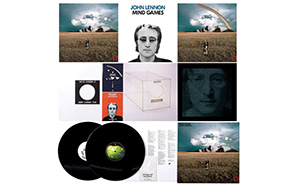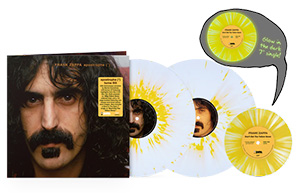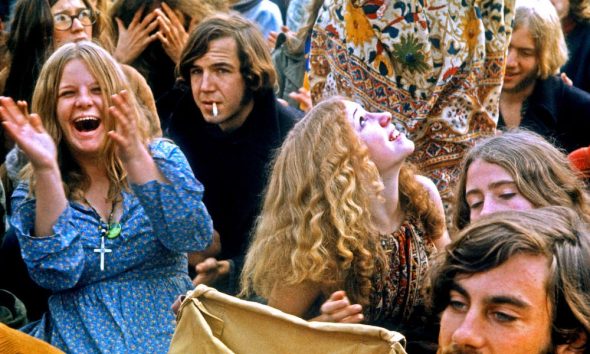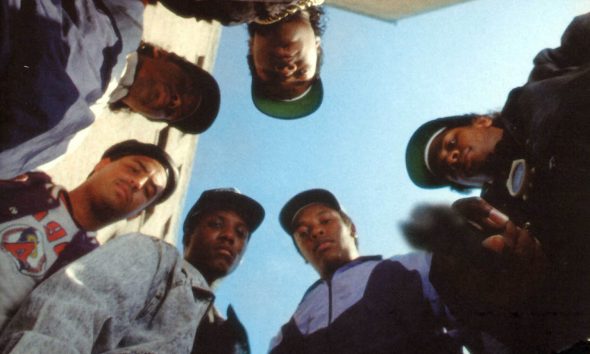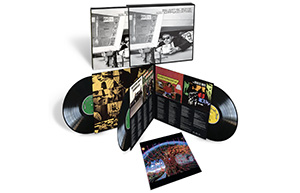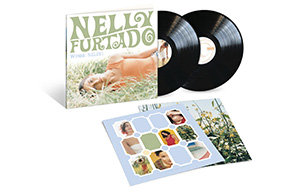Mickey Mouse Music: Disney’s Secret Weapon
The world’s most famous mouse made his big-screen debut with ‘Steamboat Willie,’ marking the point at which Mickey Mouse music first entered pop culture.
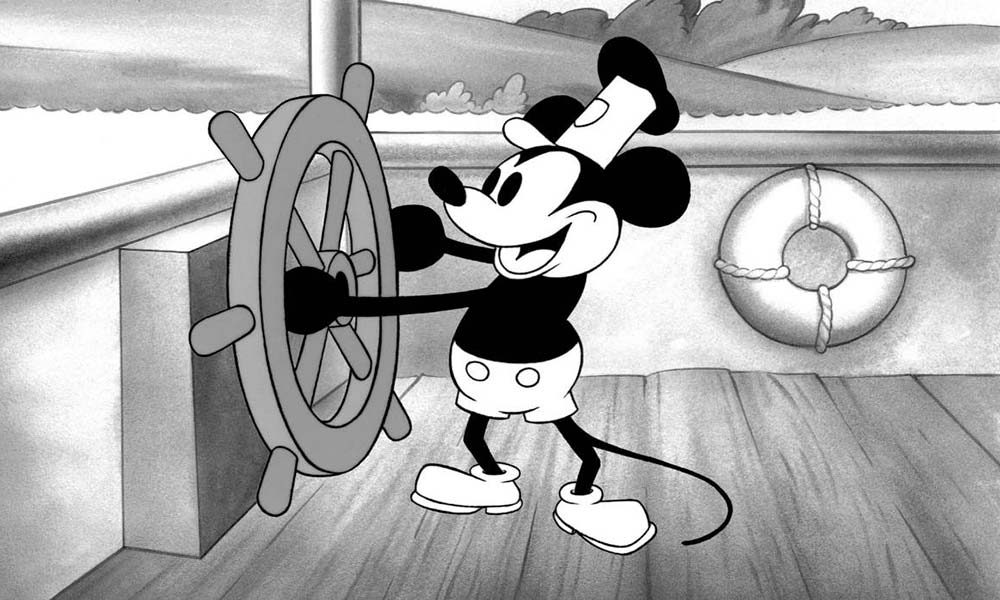
Legend has it that the world’s most famous small furry creature was called Mortimer Mouse up until the moment Walt Disney’s wife, Lilian, said she hated it. He was given the replacement name Mickey, and, on November 18, 1928, Steamboat Willie hit US cinemas with a premiere in New York. The first animation to feature synchronized music and sound effects, it marked the first instance that Mickey Mouse music entered pop culture, thanks to the all-singing, all-dancing anthropomorphic lead, who typically wears red shorts, large yellow shoes, and white gloves. Overnight, Mickey became a film star alongside his cartoon wife, Minnie.
Animator and composer Wilfred Jackson was just 22 when he worked on the short film and vividly remembered the sense of a new future dawning in the wake of The Jazz Singer, the first talkie, released in 1927. It was the beginning of the end for the silent-film era. “We were at a script meeting and Walt Disney brought up the idea that it might be possible to make cartoons with sound. That was such an exciting thing to me,” said Jackson.
“Nobody had ever seen a drawing make a noise”
Disney’s main concern was whether the audience would believe that Mickey Mouse was actually making the sounds they heard (such as playing a cow’s teeth as though they were a xylophone). “Nobody had ever seen a drawing make a noise, and there was no reason to be sure that the people would believe it. It might just look like some kind of a fake thing, and Walt wanted it to seem real.”
Kansas-born animator Ubbe Eert “Ub” Iwerks, the man who helped create Mickey Mouse, and composer Carl W Stalling helped devise a system for synchronising the music and the action, and Disney’s fears were overcome. The Disney musical empire was born.
Before making the movie, they ran a screen test, with animations running against Jackson playing the harmonica. He chose his favorite tune, “Turkey In The Straw,” which made it into the film. Disney wanted the tune “Steamboat Bill,” which was played in the film’s soundtrack by The Green Brothers’ Novelty Orchestra. In 2017, it was reprised for the Decca album Jazz Loves Disney 2: A Kind Of Magic, with a modern version by The Amazing Keystone Big Band.
To mark the character’s 90th birthday in 2018, Disney released a series of limited edition vinyl picture discs that span Mickey Mouse’s film appearances, collecting key examples of Mickey Mouse music that have long since entered pop culture. One of the releases was a 12” of Steamboat Willie, which includes audio from the original cartoon as well as an 11-minute interview with Disney about the creation of the film and its iconic big-eared star.
Steamboat Willie was an instant hit and, within a matter of months, a series of Mickey Mouse shorts followed. One of the best was The Opry House (1929), which brought classical music firmly into the world of Mickey Mouse, including the first appearance in a cartoon of “Hungarian Rhapsody No. 2” by Franz Liszt, something reprised in numerous animations down the years since.
There were 13 Mickey Mouse shorts in all that year, including Barn Dance and Mickey’s Follies, in which Mickey sings the jazzy tune “Minnie’s Yoo Hoo!” Walt Disney provided the high-pitched voice for later Mickey Mouse films, while Marcellite Wall (née Garner) was the regular voice of Minnie Mouse. Wall, who worked in the ink and paint section of the film studios, was picked out because she could speak Spanish and was willing to take a singing audition. “Walt decided my voice fitted the character,” she said. She voiced Minnie for the next 12 years.
Disney had particular fun making the film Blue Rhythm in 1931. A concert animation in the vein of The Jazz Fool or The Barnyard Concert, it features Mickey and the gang giving a performance in a large theatre; the cartoon is an extended and rather fabulous rendering of the WC Handy classic “St Louis Blues.” Mickey plays the famous blues song on the piano (borrowing some tricks from Chico Marx) and then joins Minnie in scat singing. Mickey also imitates popular bandleader Ted Lewis, top hat and all. Even the pig trumpeter is copying the style of Duke Ellington’s cornet player James “Bubber” Miley.
Disney was keen for Mickey to play jazz tunes in the films. The film studio boss was a Dixieland jazz fan, who would often bring the great New Orleans trombonist Kid Ory to play at Disneyland, when it opened. In 1961, when the second annual Dixieland At Disneyland event was held, Disney was thrilled to bring Louis Armstrong to the event with Ory. Jazz and Disney retained close ties, with Dave Brubeck and Armstrong both recording tribute Disney music albums.
Four years after the release of Blue Rhythm, animator Fred Moore gave Mickey Mouse his first real makeover. Earlier animators had drawn the mouse as a series of circles, but, for his first color appearance, in The Band Concert, Moore gave him a pear-shaped body, white gloves, and a cuter, shorter nose. The musical short featured a genuine cartoon supergroup (Goofy was on clarinet, Clarabelle Cow on flute, and Horace Horsecollar on drums).
Moore was the maestro who animated the “Sorcerer’s Apprentice” segment in the 1940 masterpiece Fantasia (the music of which also makes up part of Mickey’s 90th celebrations, coming as a die-cut picture disc). Fantasia’s success owes much to the genius of conductor Leopold Stokowski. Disney had run into the famed conductor of the Philadelphia Orchestra by chance at a restaurant in Hollywood and persuaded him to be part of his newest cartoon project. Disney spent $18,000 (about $320,000 in today’s money) on wages for the 85 musicians, stage personnel, music librarians and orchestra manager that Stokowski hired. The results earned both Disney and Stokowski special Oscars for their contribution to the art of sound motion pictures.
“An emblem of happiness”
By the 50s, Mickey Mouse had become arguably the most recognizable cartoon character of all time and the mascot of The Walt Disney Company. Ten of Mickey’s cartoons were nominated for the Academy Award for Best Animated Short Film, one of which, Lend A Paw, won the award in 1942. Mickey appeared in more than 130 films in all, and also had his own popular newspaper comic strip. The hit TV variety show The Mickey Mouse Club began in the 50s and went on to help launch the careers of teenage stars such as Annette Funicello and Justin Timberlake.
Though Disney concentrated on other films during the 60s and 70s, the company brought Mickey back for a modern dance audience in 1979, with the release of the album Mickey Mouse Disco; featuring a disco version of “Zip-A-Dee-Doo-Dah,” it went double-platinum. The famous mouse gained even more new fans in 1983 with the festive film special Mickey’s Christmas Carol, in which he was voiced by Wayne Allwine. The actor’s wife, actress Russi Taylor, went on to voice Minnie Mouse.
A fitting tribute to Disney’s creation was provided by the celebrated illustrator Maurice Sendak, who described Mickey Mouse as “the emblem of happiness.”
Listen to the best of Disney on Apple Music and Spotify.


